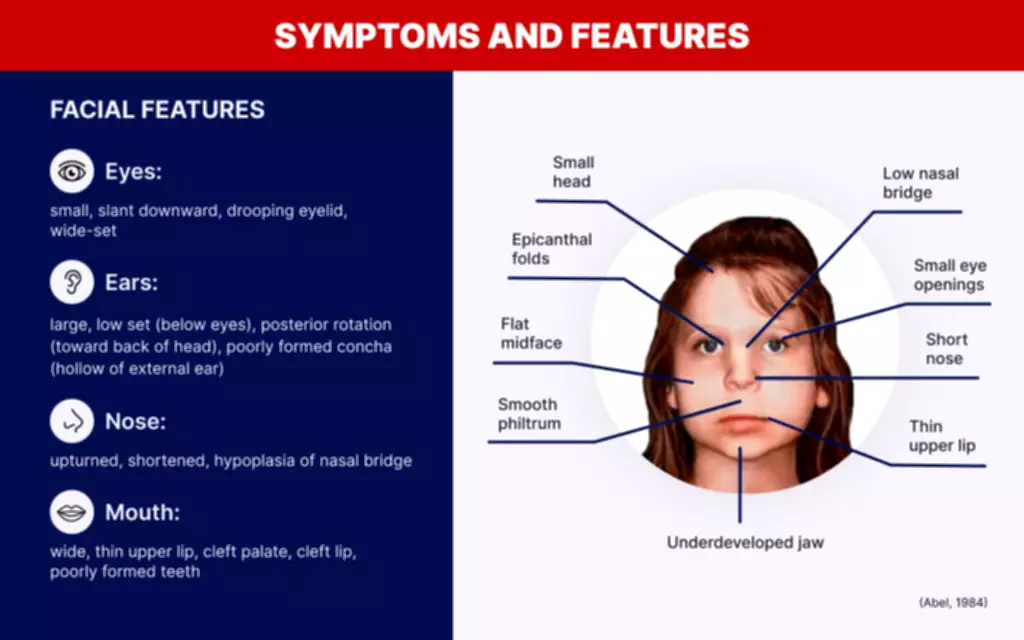
Children with an FASD can have brain abnormalities that lead to problems in day-to-day functioning despite having a normal IQ, so a comprehensive evaluation is indicated. Some common issues for children with FASDs are learning and memory impairment, poor self-regulation (including co-diagnosis of ADHD) and trouble with planning and organization. All pregnant women who are finding it hard to stop drinking should consult a doctor immediately.
Complexity of diagnosis
- It’s impossible to exactly pinpoint all of the development during pregnancy, making it risky to drink alcohol at any time prior to birth.
- The problems that can happen when babies are exposed to alcohol are grouped together and called fetal alcohol spectrum disorders (FASDs).
- The exact lasting period of alcohol in the fetal system may not be possible to state since its elimination from the baby’s body depends on the metabolizing capacity of the mother.
- Because different aspects of the child are developing at all stages of pregnancy, alcohol’s effects on a developing baby can result from alcohol use at any point during pregnancy.
- If you think your child has an FASD or other developmental problem, talk to their healthcare provider as soon as possible.
Fetal alcohol syndrome (FAS) is a collection of growth, mental, and physical problems that may occur in a baby when a mother drinks alcohol during pregnancy. Early intervention and a stable, nurturing home are important to protect children with fetal alcohol syndrome from some of the other issues they’re at risk of later in life. The National Medical and Research Council (NHMRC) guidelines state, “To prevent harm from alcohol to their unborn child, women who are pregnant or planning a pregnancy should not drink alcohol.

I’ve tried in the past to stop drinking alcohol, but I just couldn’t do it. Where can I get help?
That said, any amount of alcohol may increase the risk of a baby developing an FASD. Alcohol — including wine, beer, and liquor — is the leading preventable cause of birth defects in the U.S. If the child is more than 3 years of age, parents or caregivers can talk to a pediatrician and contact any nearby elementary school to ask for an evaluation.
Recognizing the Symptoms of Fetal Alcohol Syndrome

The physical and mental alcohol baby syndrome conditions caused by alcohol exposure before birth are lifelong. But early intervention services may help lessen some of the challenges of fetal alcohol syndrome and may help prevent some secondary disabilities. Many features seen with fetal alcohol syndrome also may occur in children with other conditions. If fetal alcohol syndrome is suspected, your pediatrician or other healthcare professional will likely refer your child to an expert with special training in fetal alcohol syndrome.
Anyone who is pregnant should have regular care throughout the pregnancy. If a pregnant person has a problem with using alcohol and cannot stop using, substance use treatment during pregnancy should be offered. The most effective treatments for fetal alcohol syndrome target your child’s specific issues. There are no medications to treat fetal alcohol syndrome specifically.
- Contrary to popular belief, if a woman doesn’t know that she is pregnant during the first trimester and drinks alcohol, the developing fetus could still develop FASDs.
- Funding has also been made available by national government to support new voluntary sector developments.
- Understanding the risks of drinking alcohol during pregnancy is the greatest motivator for prevention.
- Fetal Alcohol Spectrum Disorder (FASD) is a lifelong neurodevelopmental condition caused by prenatal alcohol exposure (PAE).
- Most cellular proliferation, migration, and synaptic regulation in the cerebellum occur in the third trimester, 24 weeks after fertilization through birth.
- Some experts estimate that approximately 40,000 babies may be born with an FASD in the United States each year.
What’s the outlook for children with FASDs?
- It’s also recommended that you avoid beverages containing alcohol when you’re trying to become pregnant.
- These include medicines to help with some symptoms, medical care for health problems, behavior and education therapy, and parent training.
- When a pregnant woman drinks alcohol, some of that alcohol easily passes across the placenta to the fetus.
- Alcohol introduced at this stage can have significant repercussions depending on the population of cells negatively affected.
- While the radial glia progenitor pool has already been established by this point in time, alcohol can still impact neural migration and synaptogenesis.
FASD is caused by prenatal alcohol exposure, which is the leading preventable cause of congenital conditions in the United States. There are currently five types of FASD, including FAS, diagnosed by prenatal alcohol exposure, craniofacial dysmorphology, growth impairment, and neurodevelopmental problems. One person might have only a few, while another person could experience all of them. An individual with FAS may have noticeable changes to their face and limbs, as well as delays in the way their body develops over time. There can also be mental and emotional challenges throughout the person’s life that can impact their social life, education and work. If you suspect your child has fetal alcohol syndrome, talk to your doctor or other healthcare professional as soon as possible.


Most often, a healthcare provider can diagnose FASDs based on alcoholism symptoms the mother’s history and how the baby looks. The healthcare provider will examine the baby to look for changes in the face, eyes, and upper lip. If you drink alcohol during pregnancy you risk causing harm to your baby.

